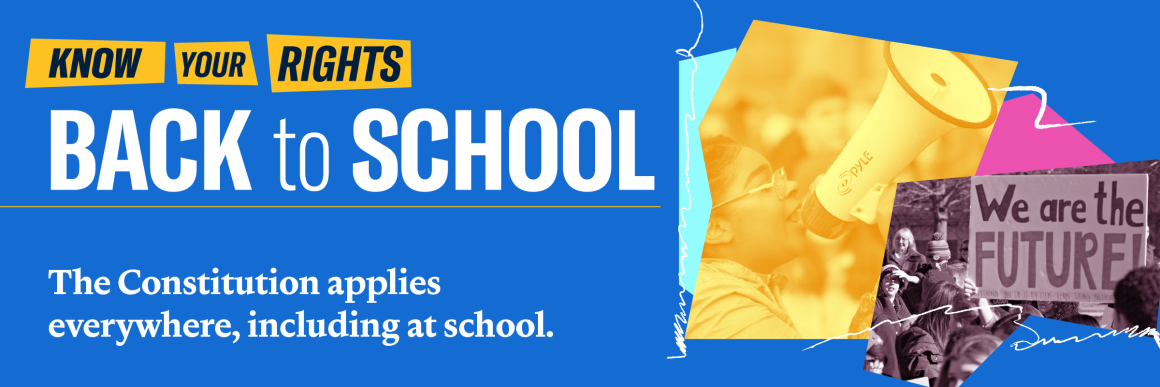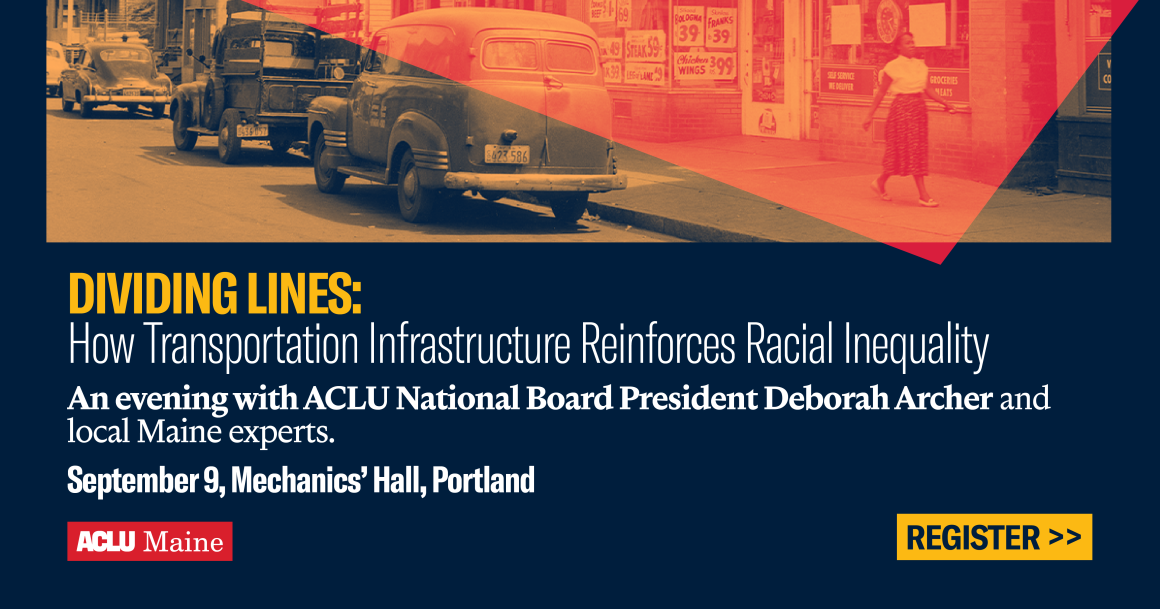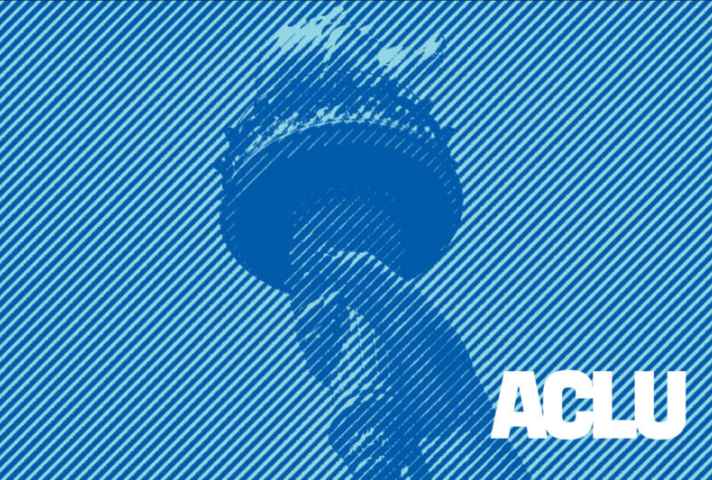After a short summer break, the ACLU of Maine is back in action with a victory from Maine's highest court, a new back-to-school toolkit, and preparations for several upcoming events!
A Victory for the Rights to Remain Silent and Access Counsel from Maine's Highest Court

On Friday, the Maine Supreme Judicial Court issued a landmark ruling strengthening the right to remain silent and access an attorney, as guaranteed by the Maine State Constitution.
The ruling requires police to stop questioning suspects if they invoke their right to remain silent or request counsel – even if their request is ambiguous or happens in the middle of questioning. This expands Maine state constitutional protections beyond the U.S. Supreme Court's restrictive view of federal Miranda rights.
This case, State of Maine v. Derric McLain, originated when Mr. McLain was read his Miranda rights and then asked officers, "Is there a lawyer here?" Instead of stopping to clarify or provide a lawyer, the police kept questioning him. The prosecution then used that interrogation as evidence against him in a criminal trial. Maine's highest court has now ruled that this violated Mr. McLain's right against self-incrimination under Maine's constitution.
We filed a friend-of-the-court brief and presented oral arguments in this case in 2022. With this ruling, Maine's highest court has clarified that the Maine Constitution provides stronger protections than the U.S. Constitution. Even when federal courts erode or limit federal constitutional protections, this victory shows how state constitutions can serve as important sources of more expansive rights and freedoms. That's why it's so crucial for the ACLU of Maine to keep fighting for our rights here at home.
Students, Parents, Teachers, and Staff: Know Your Rights As You Head Back to School
We're reminding students, parents, and educators that the Constitution applies everywhere, including at school. Together with EqualityMaine and GLAD Law, we’ve created a resource guide to help Mainers understand, exercise, and protect their rights in the classroom.
The Know Your Rights: Back to School toolkit covers:
- Guidance for families, students, and staff to protect the rights of immigrant students
- The rights of pregnant students, students with disabilities, and LGBTQ+ students
- Gender-inclusive participation in sports, facility use, and names and pronouns
- Student free speech, protests, and walkouts
- Students' rights when interacting with school resource officers or other law enforcement
- Access to books and other information
- Faculty and staff free speech
As the Supreme Court ruled in 1969, students do not "shed their constitutional rights to freedom of speech or expression at the schoolhouse gate.”
ACLU's National Board President Comes to Portland
We’re thrilled to welcome Deborah Archer, president of the ACLU’s national board and a leading legal scholar, for a conversation about her recent book, Dividing Lines: How Transportation Infrastructure Reinforces Racial Inequality.
In her book, Archer explores how highways, roads, and other infrastructure have been used to maintain segregation and deepen racial inequality long after the fall of Jim Crow. A discussion following her talk will feature three Maine-based panelists:
- Angelique Bitshilualua, Inclusion Manager at Portland Trails
- Bruce Hyman, Transportation Program Manager, City of Portland
- Julie Larry, Senior Architectural Historian at Black Diamond Consultants
This event is free and open to the public.
Date
Friday, August 29, 2025 - 10:15amFeatured image





